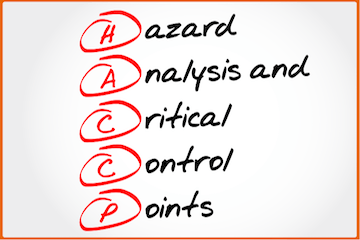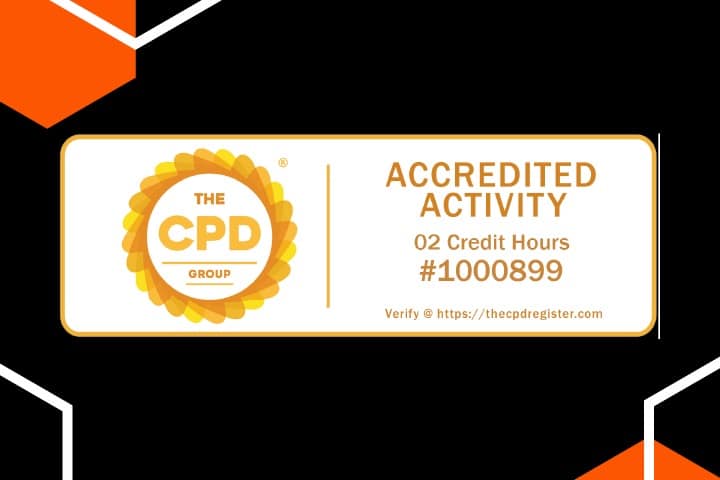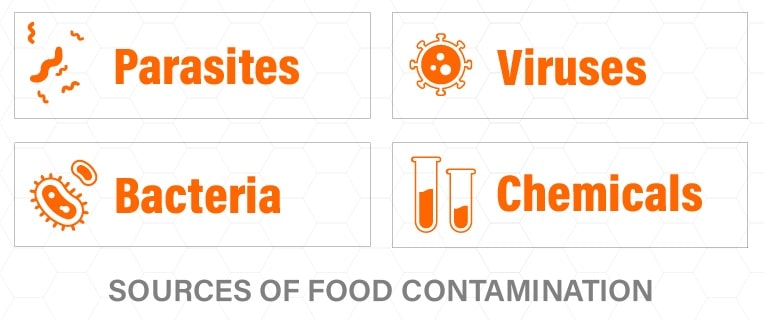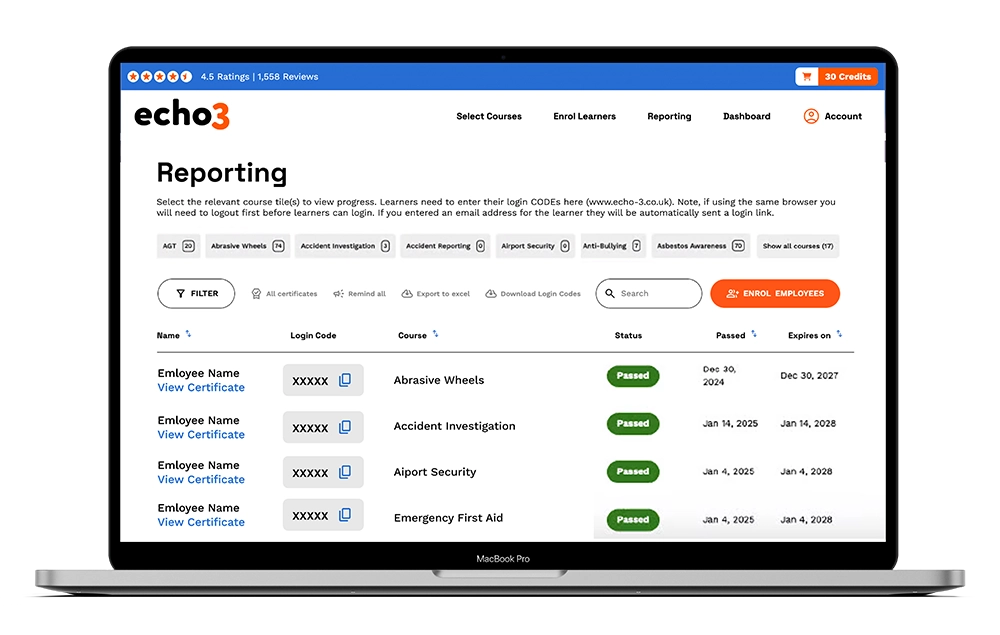HACCP LEVELS 1 & 2 Course
This fully accredited, online HACCP Level 1&2 online has been designed to provide staff with the fundamental knowledge needed to work safely within a HACCP-based food safety system.
The UK Food Standards Agency estimates around 2.4 million cases of foodborne illness occur each year in the UK. There are around 45 million cases occur across the EU. Most cases lead to just an uncomfortable illness, but occasionally food borne illness can lead to death.
Many of these illnesses could have been prevented if HACCP principles were implemented and followed correctly. Implementing the principles if HACCP is vitally important. Food poisoning as result of poor work practices can have disastrous consequences for people and business alike.
Due to the risks from food poisoning, UK & EU legislation requires all business operators to have a food safety plan based on the 7 Hazard Analysis and Critical Control Point (HACCP) principles.
The law also requires staff to be provided with appropriate HACCP training.
This Level 1&2 HACCP training has been designed to provide staff with the appropriate knowledge needed to work safely within a HACCP-based food safety system.
On successful completion a verifiable, CPD-accredited HACCP Levels 1&2 certificate will be emailed and stored online.
Level 2 HACCP Course Content
Unit 1 – Introduction
We introduce the foundational knowledge staff need to operate within a HACCP-based food safety management system. This includes an overview of why HACCP is important, what it involves, the benefits of the S.A.F.E.F.O.O.D. approach, a clear explanation of Hazard Analysis and Critical Control Points, and an introduction to the 7 principles of HACCP.
Unit 2 – Legislation
We explore the key legislation that protects the public, staff, and employers. This section helps employees understand their legal responsibilities, not only to your business but also to the safety and wellbeing of your customers. We also introduce the regulatory authorities responsible for enforcing these laws and explain their powers, helping staff recognise the importance of compliance in maintaining high food safety standards.
Unit 3 – Principles of HACCP
This unit introduces the seven core principles of HACCP, which form the foundation of a preventative approach to food safety. These principles are designed to help implement and maintain an effective HACCP plan across the workplace. In this unit, we’ll examine each principle and highlight key focus areas to ensure a safe, compliant, and well-managed food environment.
Unit 4 – Understanding Food Safety Hazards
Now that learners are familiar with the basic principles of HACCP, this unit focuses on the different types of hazards that the system is designed to prevent. We explore biological hazards such as bacteria and parasites, as well as physical and chemical risks. The unit also covers key control measures including colour-coding, monitoring procedures, FIFO (First In, First Out), and temperature control—all essential for maintaining a safe and compliant food environment.
Unit 5 – HACCP Prerequisites
To be effective, the principles of HACCP must be supported by a solid prerequisite programme. These programmes establish the essential environmental and operational conditions required to produce safe, hygienic food. By understanding and applying these prerequisites, staff can actively contribute to the success of your HACCP system.
In this unit, we cover the key prerequisites to HACCP, including cleaning and sanitation, equipment maintenance, personal hygiene and staff training, basic hygiene practices, first aid procedures, uniforms, and pest control.
Unit 6 – Final Quiz
The Level 2 HACCP course concludes with a 15-question multiple-choice quiz designed to assess your understanding of the key concepts covered. To pass, a score of 80% or higher is required. Upon successful completion, a CPD-accredited certificate will be emailed to you. Don’t worry, if needed, the quiz can be retaken.
HACCP Levels 1 & 2 Course Certificate

Download and Print Your Certificate
- Written in compliance with the Regulation (EC) No 852/2004
- Developed by qualified health and safety professionals
- Accredited by CPD – learn more about CPD here
- Last Updated June 2022
- To gain the certificate you must complete the assessment which involves 20 questions.
- The online HACCP Levels 1&2 certificate is valid for 3 years.
Course Preview
Echo3 courses include engaging motion-graphic video content, with full english subtitles
Reviews
How to Get Certified in 3 Steps
Individual Learners

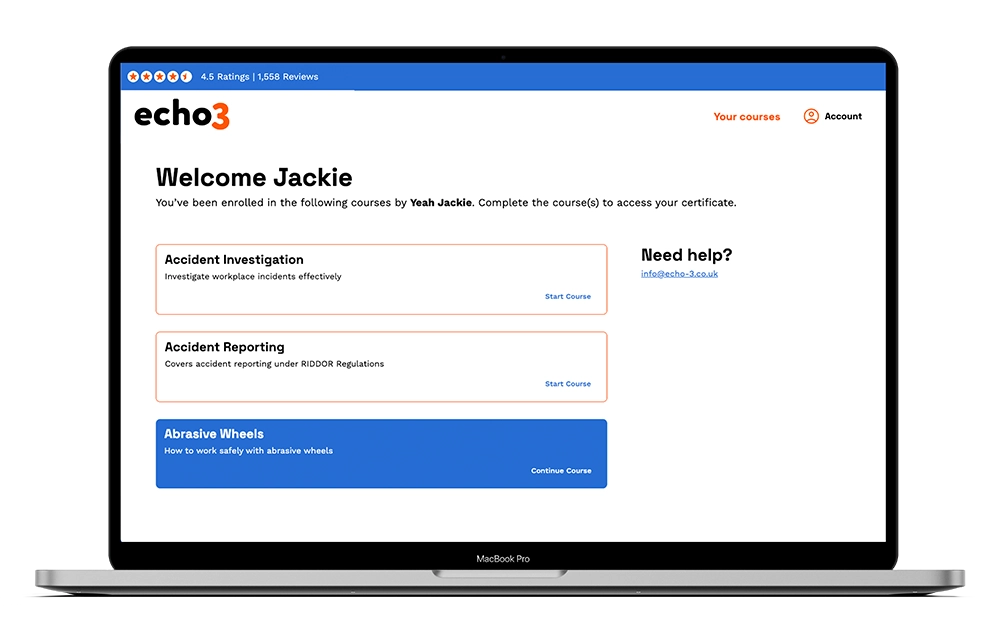
Benefits for Individuals
-
Engaging video-based content
-
Learner dashboard included
-
Instant access after payment
-
Free course retakes
-
Shareable digital certificate
 QR Code Certificate
QR Code Certificate




Bulk Buying Discounts
Who is this HACCP course for?
All staff working in food retail, catering, or manufacturing. For example, those working in; Bars and restaurants, food retail outlets, cafes, take-away outlets, street food vendors, food counters and food manufacturing.
For those who manage or supervise staff we recommend the HACCP Level 3 course.
What are this HACCP course learning outcomes?
On completion of this HACCP level 2 online course learners will know:
- What HACCP is
- Why HACCP is important
- Fundamentals of food safety legislation
- The 7 principles of HACCP
- The 10 HACCP prerequisites
- Employee duties with respect to food safety
What are the HACCP training objectives?
- Help all food businesses maintain high food safety standards by providing a clear understanding of HACCP to their employees.
- Help food businesses comply with the appropriate training requirements of food safety regulations.
What is HACCP?
HACCP stands for Hazard Analysis and Critical Control Point it is a systematic approach to identifying and controlling hazards that could pose a danger to the preparation of safe food.
Above all, it’s about ensuring food is safe for consumption. In other words, HACCP helps operating a safe kitchen, canteen, deli, or food preparation area.
The principles of HACCP have been developed to protect against poisoning. The growing, delivery, preparing, and serving of food are all a part of this.
What are the risks from bacteria?
In the right conditions 1 bacteria can become 1 million in 4 to 5 hours. 1 million bacteria are so small they could all live on the head of a pin. But it only takes around 200,000 bacteria for a healthy adult to become ill.
Consequently, most people will experience a foodborne disease at some point in their lives.
Why is HACCP training important?
All staff who work in the food industry must do their part to make sure food is safe.
Bacteria, parasites, viruses, toxins, and chemicals can all make food poisonous.
Food can be contaminated at any point during production, preparation, and distribution.
Training staff on how to work safely is an important part of management systems
Related Courses
HACCP Level 3 – Provide managers & supervisors with the knowledge needed to implement & maintain a HACCP-based food safely management system.
Food Hygiene Level 2 – Provides staff with the knowledge needed to adopt safe food handling and hygiene practices.
Food Hygiene Level 3 – Provides managers & supervisors with the knowledge needed to ensure safe food handling and hygiene practices are always observed.
Food Allergies – Provides staff and managers with the knowledge needed to properly manage allergens.
Preventing Cross-Contamination – Provides the knowledge needed to prevent the cross-contamination of bacteria including E.coli in food businesses.





